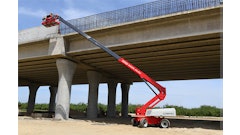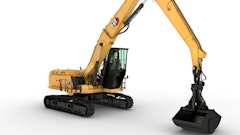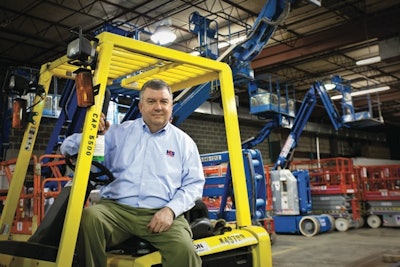
Andy Studdert, current CEO of NES Rentals and former COO of United Airlines, was elected president of the International Powered Access Federation (IPAF) at its annual general meeting and Summit in March. We caught up with Studdert recently to find out what his plans are for the organization during the two years of his term.
Lescohier: In the U.S., there seems to be a challenge in getting people to operator training, which is quite different from the European attitude. Why do you think that is?
Studdert: We don't have structured requirements here. For the 11 years I've been in the industry I've been saying that if you drive into one of my depots, I can't rent you a Ford F-150 without a driver's license, but I can rent you a 150-foot boom. That makes no sense to me.
Lescohier: So you advocate for licensing operators of aerial equipment?
Studdert: That's what we're trying to do. We want good quality training to be standard. One way we try to achieve this is through IPAF’s voluntary, industry-led operator training program that provides a professional and high level of training.
Lescohier: What's your background with IPAF?
Studdert: When I started with with NES, I was trying to find a vehicle for internal and external paths to a safer company. At that time, NES was a new company made up of 41 individual companies that were rolled up together, so we didn't have an established safety culture. I brought a lot of my airline experience with me and took the best of what I could find at NES, but I still felt the industry in North America was wanting for a standard and a direction. I was introduced to IPAF and decided that was the direction NES should go. Later, I gave a couple of speeches for IPAF and then in 2009, I was awarded the trophy for safety champion of the year at the International Awards for Powered Access. In 2012 I was co-opted on IPAF's board of directors and have been on it since.
Once on the Board, I wanted NES to serve as the example and challenge other US-based rental companies. Since then, about two years ago, we took on an initiative to get all NES employees trained through IPAF. Today, all of our employees have PAL Cards, unless they physically can't complete the training. The intention was to get every employee - from branch manager to CEO to accounting clerk - trained to the same level. That's a huge commitment but its also a big culture shift, and it really bonded the company well because now the drivers have a feeling that the billing clerks know what they're going through every day.
Lescohier: What are your goals for IPAF during your two-year term as president?
Studdert: Increasing awareness of the organization is part of what were trying to do, but we're also trying to make it easier for people to get trained, particularly the classroom/theory portion, and we're doing that through our eLearning module. At the same time, practical training and assessment remains an essential part of the IPAF operator training program.
Lescohier: North Americans remain so resistant to investing time and money in quality training. How can you combat that resistance?
Studdert: I continue to drive home the point that a well-trained, safe organization is a more profitable, more efficient organization. There's a tendency to think "I can't afford to take a person out of the workforce for half a day; I cant afford to train them." But a safe organization is more efficient, has lower insurance costs and fewer lost-time injuries. When safety and training are high priorities, the entire scope of your business is taken to the next level. You're fulfilling your primary obligation, which is to get your employees home in the same condition that they started the day in, and the secondary benefits are that it's less costly and more efficient.
Right now, the aerial industry is booming and that's great. The challenge is to keep people aware that they're working above the ground and need to understand the inherent danger as well as the limits of the equipment they're using. There's no safer way to work at height than to use a piece of aerial equipment, but that doesn't mean you can take it for granted. More education of the operators and managers is key to enhancing the safety of an already safe piece of equipment.
Lescohier: How do you plan to achieve that goal?
Studdert: If I could wave my magic wand, everybody that operates a piece of aerial equipment would have a PAL Card, period. But in reality, making that happen will take manufacturers, rental companies, contractors and insurance providers to band together and push in that direction. My experience is that the government should be a safety net, not a driver of this. In the airline business, the FAA wasn't there to make you do the right thing; it was there to help if you missed something. You can't have airplanes falling out of the sky and expect customers to continue flying. So you do the right thing. We need to have the same mindset in our industry.
Lescohier: Any additional goals?
Studdert: I'd like to see the new eLearning system fully rolled out around the world. That will allow people to learn at their own pace. Also, making training available in different languages is key as there's a worldwide demand.
Lescohier: How is the new eLearning system different from the existing version, which was introduced two years ago?
Studdert: The new eLearning system is being developed by IPAF and Bolt Learning, an organization of professional educators. It's a quantum leap ahead of where we are now. Some people learn visually, some people listen, some people do, some people read. The new system will allow users to learn according to their own learning style, which will allow for stronger retention and long-term results. It will allow for either eLearning at home or to act as the basis for instructor-led learning around the world, but it also allows for quicker updates and faster translation on the back end.
Lescohier: From a membership standpoint, how will IPAF evolve during your presidency?
Studdert: Currently, the United Kingdom is the jewel in the crown of IPAF. Recognizing that it will always be important, we are an international organization by charter, so we need to embrace the world. That means handling a greater degree of change than most organizations are used to. That's an expertise I've gained from my career so one of my goals is helping IPAF manage change.
Lescohier: How will help the organization embrace change?
Studdert: First of all, communication is key. That sounds trite, but if you have people who are worried about their position within an organization, then they tend to get scare and paranoid and resist the change the organization needs to go through. So you talk to them, tell them everything that could possibly happen, and you make sure they feel comfortable that if there is a change that affects them, it will be handled fairly. Some people resist change out of fear, while others embrace it, because of the excitement and the challenge. We want IPAF members to be excited about change.
Lescohier: In conclusion, why should end users and rental companies look to IPAF for their training needs?
Studdert: I'd like to remind everyone that IPAF is a not-for-profit organization. Our purpose is to enhance safety for temporary work at height. It's a noble goal, and our our training program is a great product. The PAL Card is an audited, certified license; it ought to be the standard for the industry. We're going to push real hard in North America to get people to understand this. IPAF has got a worldwide structure, organization and product, and I'd really like to see North America embrace it and take it seriously.



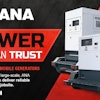
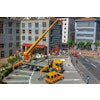

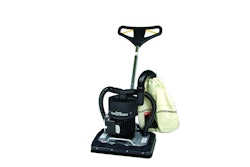
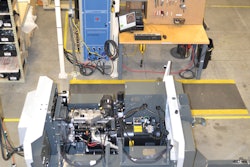
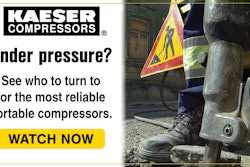
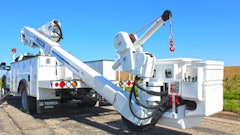
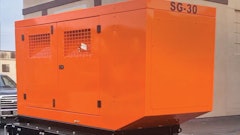
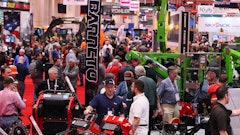
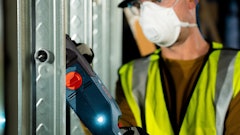
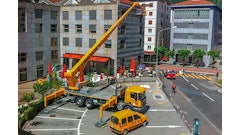
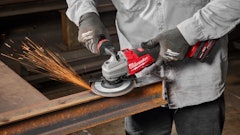
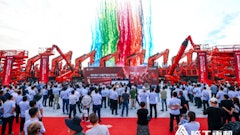

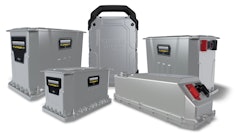
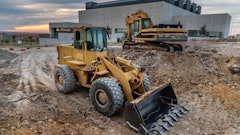
![Building Angled Sm Edit 6050b8d213f1b[1]](https://img.forconstructionpros.com/mindful/acbm/workspaces/default/uploads/2025/09/building-angled-sm-edit6050b8d213f1b1.Ygq5aAos3b.png?ar=16%3A9&auto=format%2Ccompress&crop=focalpoint&fit=crop&fp-x=0.53&fp-y=0.23&fp-z=2&h=135&q=70&w=240)
